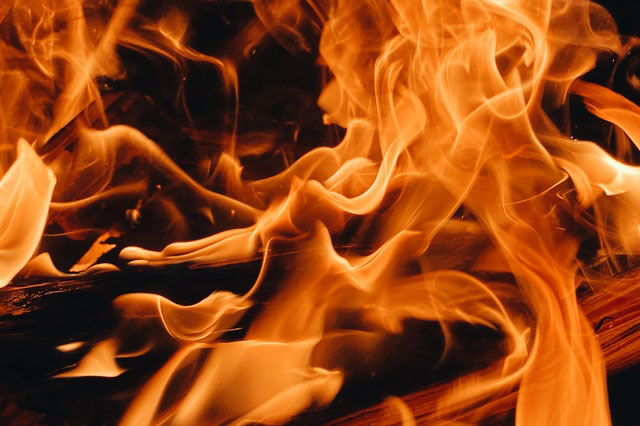Lagos – A fire on Wednesday badly damaged a main bridge in Nigeria’s commercial capital Lagos, razing dozens of shops and risking more traffic chaos, the emergency services and witnesses said.
The blaze broke out during an extended nationwide electricity shortage, which along with a spike in global fuel prices is already hurting households and businesses in Africa’s largest economy.
“The blaze gutted the Eko bridge. A section of the bridge at Apongbon in Ebute Ero was affected. The bridge has been physically damaged,” Ibrahim Farinloye of the National Emergency Management Agency (NEMA) told AFP.
Eko bridge is one of three flyovers linking mainland Lagos to the upscale and business districts on the islands of the city which sits between a lagoon and the Atlantic Ocean.
PHOTOS: Aftermath Of Fire Incident At Apongbon, Lagos Island
The fire incident under the Eko Bridge at Apongbon, on Wednesday, has impacted part of the bridge. pic.twitter.com/3jg2Qprl3p
— Punch Newspapers (@MobilePunch) March 23, 2022
Many small businesses and shops operate around and under parts of the bridge.
“Lots of shops have gone,” Farinloye said, adding that traders selling baking materials and ingredients were mostly affected.
Farinloye said no one was hurt in the incident but due to the damage to the bridge, authorities would have to conduct integrity tests to see if the flyover can reopen.
Rukayat Balogun, a market leader, said a sudden surge of electricity caused the fire.
“We have not had light for six days. So when they brought the light around two am, there was a spark that caused the fire,” she said, showing AFP burnt wires and cables at the scene.
Intense Firefighting Operations ongoing at the #Apongbon #Bridge.
Video: Lagos state #fire service pic.twitter.com/UH300ZEWi5
— Daily Trust (@daily_trust) March 23, 2022
Oil-producer Nigeria has suffered nation-wide blackouts in the past few weeks, with homes and businesses forced to rely on fuel-powered generators to keep the lights and power on.
The cost of diesel, gas and fuel have gone up, in part due to the Russia-Ukraine war which has also distorted global supplies of grains and petroleum products.
Nigeria is Africa’s biggest oil producer, but the country imports the bulk of its fuel for domestic use due its current lack of fully functioning refineries.
Follow African Insider on Facebook, Twitter and Instagram
Source: AFP
Picture: Unsplash
For more African news, visit Africaninsider.com


